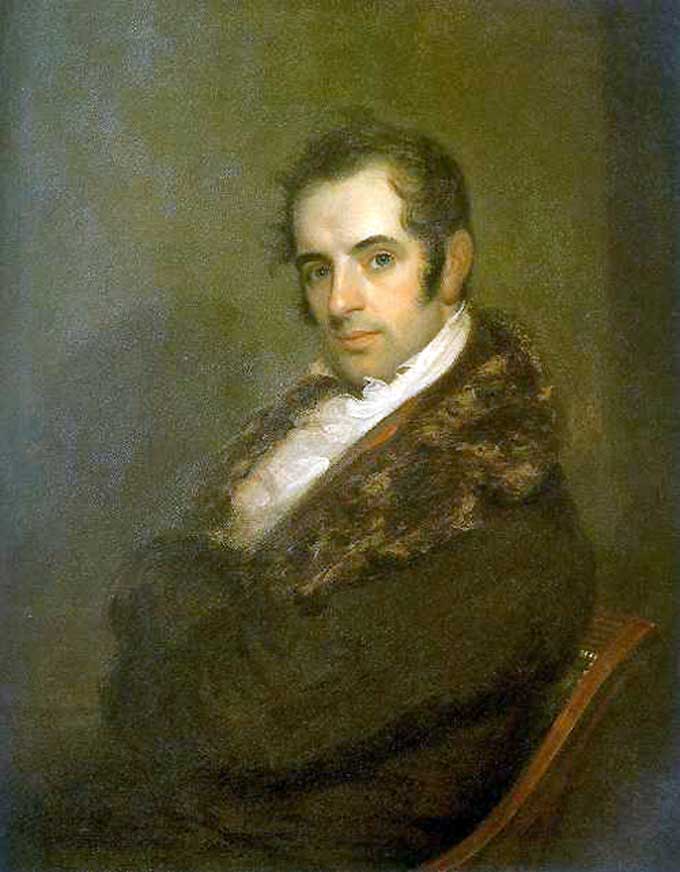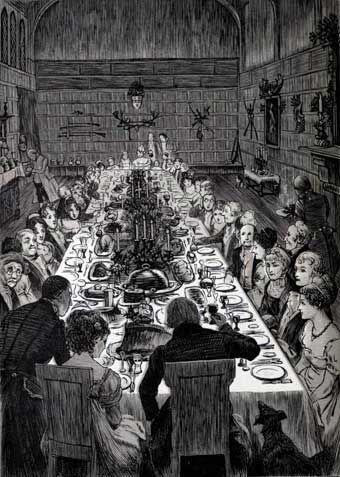
John Wesley Jarvis, painter, oil on wood. Washington Irving 1809
Washington Irving was most famous for his short stories of Rip van Winkle (1819) and Sleepy Hollow (1820), both of which appeared in The Sketch Book of Geoffrey Crayon, Gent., (the first time he ever used the pseudonym Geoffrey Crayon). However, in The Sketch Book of thirty-four essays and short stories he penned four Christmas stories of an old-fashioned Yule celebration at an English country manor while he was staying at Ashton Hall in Birmingham, England.

Christmas Dinner at an English country manor
In 1804 the New York Historical Society was founded by John Pintard who continually imposed the idea of St. Nicholas from the start of the society. He proposed December 6 to be St. Nicholas Day for a New York Holiday. The earliest mention of of St. Nicholas in the historical society was at the annual banquet held January 10, 1809 when Dr. David Hosack on behalf of Pintard's deafness offered the following toast:
To the memory of St. Nicholas. May the virtuous habits and simple manners of our Dutch ancestors be not lost in the luxuries of refinements of the present time.Washington Irving's name was proposed for membership at this dinner where he became a member that same year. Without Irving's Knickerbocker History there would be no Santa Claus. There were no less than twenty-five allusions to Santa Claus in this writing. This idea of Santa Claus spread like the plague influencing the customs and traditions we celebrate today. It was on St Nicholas Day, December 6,1809 when Irving published History of New York. The satire piece became an immediate success. Santa Claus proved durable when the concept helped found the Nicholas Society of the City of New York in 1835 where Irving served as secretary until 1841.
It was Charles Dickens who wrote the classic A Christmas Carol who credited Washington Irving as a big influence of his own Christmas writings.
This year we bring to you those Christmas stories written in England originally penned in the Fifth Installment on January 1, 1820 - Christmas, Christmas Eve, The Stage Coach, Christmas Day and Dinner.
Source: Research & Intro by Bryan Wright




